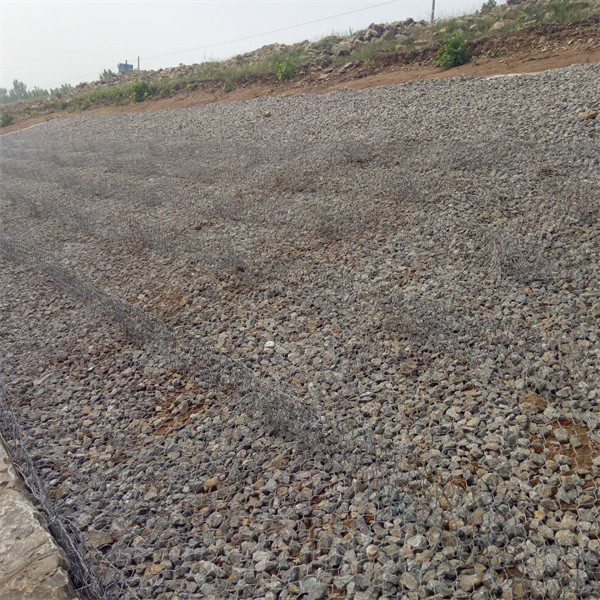ag. . 24, 2024 09:04 Back to list
Gabion Basket Stone Suppliers for High-Quality Outdoor Landscaping and Erosion Control Solutions
Stones for Gabion Baskets A Comprehensive Guide for ManufacturersGabion baskets are increasingly popular in various applications, from erosion control to landscaping and architectural design. These wire mesh containers are filled with stones or other materials to form sturdy structures that withstand environmental forces. The choice of stones for gabion baskets plays a crucial role in their durability, aesthetics, and overall effectiveness. For manufacturers, understanding the best stones to use and the factors influencing their selection can enhance product quality and customer satisfaction.Types of Stones Used in Gabion Baskets1. Granite Granite is a favored choice due to its durability and resistance to weathering. This igneous rock is strong, making it ideal for structures exposed to harsh conditions. Additionally, its various colors and textures can contribute to an attractive finish, appealing to landscaping projects.2. LimestoneLimestone is another common option, especially for applications where cost is a consideration. It is more affordable than granite and readily available in many regions. Although it is less durable than granite, its natural beauty and ease of handling make it a popular choice for decorative purposes.3. River RocksRound river rocks offer a unique aesthetic, providing a natural look that blends well into landscapes. They are typically smooth and vary in size, giving projects a softer appearance. However, manufacturers must ensure that these stones are washed and free of silt or organic materials to prevent degradation over time.4. BasaltBasalt stones, formed from lava, are another excellent choice known for their hardness and density. They typically have a dark color, which may suit certain design preferences or environments. Their resistance to extreme weather conditions makes them suitable for various engineering applications.Factors Influencing Stone SelectionWhen selecting stones for gabion baskets, manufacturers should consider several factors1. Purpose of the StructureUnderstanding the primary function of the gabion basket will inform stone selection. For example, structures meant for heavy load-bearing applications may require denser stones, while those intended for decorative purposes may prioritize aesthetic appeal.2. Environmental ConditionsStones used in coastal areas, floodplains, or regions with high erosion should exhibit excellent durability and weather resistance. It is crucial to select stones that can withstand saltwater exposure, freeze-thaw cycles, and other environmental stresses.3. Size and ShapeChoosing the right size and shape of stones is essential for both structural integrity and ease of filling the gabion baskets. Stones should be angular rather than rounded to help interlock and prevent movement within the basket. Typically, stones of sizes ranging from 4 to 12 inches are ideal for gabion structures.4. Regulatory StandardsManufacturers must adhere to local regulations and industry standards regarding the use of materials. Ensuring that stones are sourced sustainably and responsibly is also essential for environmental compliance and brand reputation.ConclusionIn conclusion, the right selection of stones for gabion baskets is vital for manufacturers seeking to provide high-quality, durable products. With options like granite, limestone, river rocks, and basalt each offering unique benefits, understanding the specific requirements of a project will aid in making informed choices. By considering factors such as purpose, environmental conditions, stone size and shape, and regulatory standards, manufacturers can enhance their offerings and meet customer expectations effectively. Whether for erosion control, landscaping, or architectural elements, the right stones will ensure that gabion baskets serve their intended purpose efficiently and beautifully.
stones for gabion baskets manufacturer
-
Why PVC Coated Gabion Mattress Is the Best Solution for Long-Term Erosion Control
NewsMay.23,2025
-
Gabion Wire Mesh: The Reinforced Solution for Modern Construction and Landscape Design
NewsMay.23,2025
-
Gabion Wall: The Flexible, Seismic-Resistant Solution for Modern Landscaping and Construction
NewsMay.23,2025
-
Gabion Wall Solutions: The Durable, Decorative, and Affordable Choice for Every Landscape
NewsMay.23,2025
-
Gabion Basket: The Durable and Flexible Alternative to Traditional Retaining Walls
NewsMay.23,2025
-
Gabion Basket: The Proven Solution for Slope Stability and Flood Control
NewsMay.23,2025
-
Versatility of Chain Link Fence Gabion
NewsMay.13,2025






